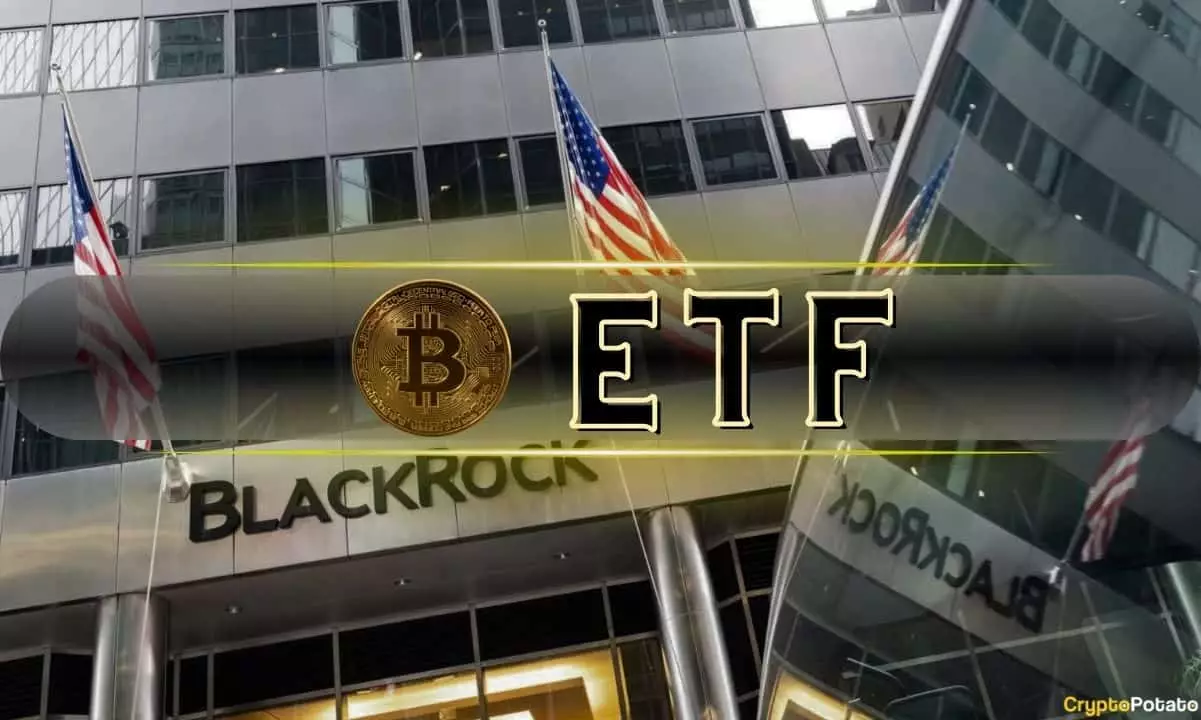On October 21, a remarkable development unfolded in the cryptocurrency landscape as investors flocked to BlackRock’s iShares Bitcoin Trust (IBIT), purchasing approximately 4,869 BTC valued at $329 million. This surge in investments occurred despite an overall retreat in the cryptocurrency market, demonstrating a keen interest among investors for Bitcoin amidst competing spot Bitcoin exchange-traded funds (ETFs) in the United States experiencing notable outflows. In stark contrast to IBIT’s inflow, other prominent funds—excluding Fidelity’s—saw zero or negative flows, resulting in a total net inflow across all funds of just $294.3 million.
This persistent inflow into IBIT marks its sixth consecutive trading day of positive contributions, amassing an impressive $1.47 billion over the previous week alone. Since its launch in January, the fund’s total inflows have exceeded $23 billion, positioning it as a formidable player in the current ETF market.
Industry Appreciation and Market Positioning
ETFs have become a critical investment vehicle, and industry experts are taking note of IBIT’s success. ETF Store President Nate Geraci pointed out that the inflows from the last week alone would have made it one of the top five launches of 2024, out of a staggering 570 ETFs. Furthermore, on the same day, Bloomberg’s ETF analyst Eric Balchunas highlighted the fund’s substantial weekly inflows, its best performance since March. With assets under management (AUM) ranking in the top 2% of all ETFs, IBIT’s rapid growth signifies a bullish sentiment among investors looking for exposure to Bitcoin.
Additionally, the fund has now claimed the third spot for inflows year-to-date among all trading ETFs, even outpacing established funds like the Vanguard Total Stock Market Index Fund (VTI). Fidelity’s Bitcoin ETF (FBTC) managed to record a modest inflow of $5.9 million, continuing its streak of positive numbers but lagging behind BlackRock’s remarkable performance.
The Ethereum ETF Landscape and Broader Repercussions
Despite the robust performance of Bitcoin ETFs, the spot Ethereum ETFs faced significant challenges. Preliminary data indicated a net outflow of $20.8 million on October 21, with Grayscale’s ETHE fund suffering a staggering withdrawal of $29.6 million. This outflow only compounded the issues for Ethereum-related funds, which have seen over $3 billion in redemptions to date. The ongoing capital flight from Grayscale has placed pressure on the entire Ethereum ETF sector, as investors seek to reposition their portfolios away from high-fee offerings.
The broader market environment has contributed to this volatility. On the day of BlackRock’s record inflow, Bitcoin experienced a pullback of 3.3% from its multi-month high of $69,300, dipping to just below $67,000. This drop was anticipated, as leverage and open interest in BTC futures had reached unprecedented levels, suggestive of an overheated market. While Bitcoin showed signs of recovery, trading at around $67,500, altcoins endured even harsher corrections, with notable losses across platforms like Ethereum, Near Protocol, Sui, and Litecoin.
The recent inflow of capital into BlackRock’s IBIT signals a renewed interest in Bitcoin investment, even as the broader markets are experiencing bearish pressures. The divergence in performance between Bitcoin and Ethereum ETFs highlights a critical trend within the cryptocurrency space—investor sentiment remains robust for Bitcoin, while Ethereum-related funds grapple with financial outflows. As the cryptocurrency landscape evolves, it is essential for investors to stay informed and adapt their strategies based on market conditions and emerging trends in ETF offerings.


Leave a Reply